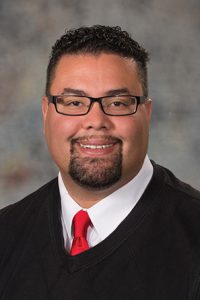Innovation hub measure clears final round
Lawmakers gave final approval April 11 to a proposal that updates the Nebraska Innovation Hub Act, renames and expands a community development law and limits the number of special retail districts that may be created statewide.

The Nebraska Innovation Hub Act allows the director of the state Department of Economic Development to designate private nonprofit corporations and postsecondary educational institutions as innovation hubs in certain geographic areas to stimulate partnerships, economic development and job creation.
LB1344, sponsored by Omaha Sen. Justin Wayne, allows an innovation hub to be located within an inland port district, 30 miles of a certain reservoir or any county with a population of less than 100,000.
It also increases the maximum number of innovation hubs that may be designated in the state’s 1st Congressional District from four to six and in the 2nd Congressional District from three to four.
As amended, the bill contains provisions of Wayne’s LB1356, which expand the definition of community betterment organization to include inland port authorities.
The bill renames and modifies the Community Development Assistance Act, which allows cities, villages, counties and other community betterment organizations engaged in eligible activities in community development areas to apply to the DED to have one or more programs certified for tax credit status.
Under the new Creating High Impact Economic Futures Act, agribusinesses, innovation hubs and inland port authorities also are classified as community betterment organizations. The definition of community development area expands to include economic redevelopment areas, enterprise zones, counties with a population of less than 10,000 and inland port districts.
The operations of inland port authorities, sports complexes and intermodal facilities are among the new activities that are eligible for tax credit status.
Under the bill, individuals are eligible for a nonrefundable income tax credit equal to 100% of their contributions to a community betterment organization’s certified programs or projects. Passthrough entities, corporations and estates or trusts are eligible for a nonrefundable credit equal to 50% of their contributions.
As amended on select file, the bill limits total credits for 2025 and 2026 to $900,000 per year, with a total of $300,000 per year for each congressional district. The annual limit increases to $3 million for 2027 and later years, with a total of $1 million per year for each district.
The maximum amount of credits per program or project is limited to $150,000 per year for both the 1st and 3rd congressional districts.
Finally, LB1344 contains provisions of Wayne’s LB1228, under which no more than five good life districts may be created statewide. Under the bill, only one good life district may be created in a county with a population of 500,000 or more, not including a district created within an inland port district.
As amended on select file, LB1344 also allows a good life district to be created in a sanitary and improvement district in a county with a population of less than 100,000 if the project meets certain investment or employment thresholds.
Senators voted 41-0 to pass the bill.

